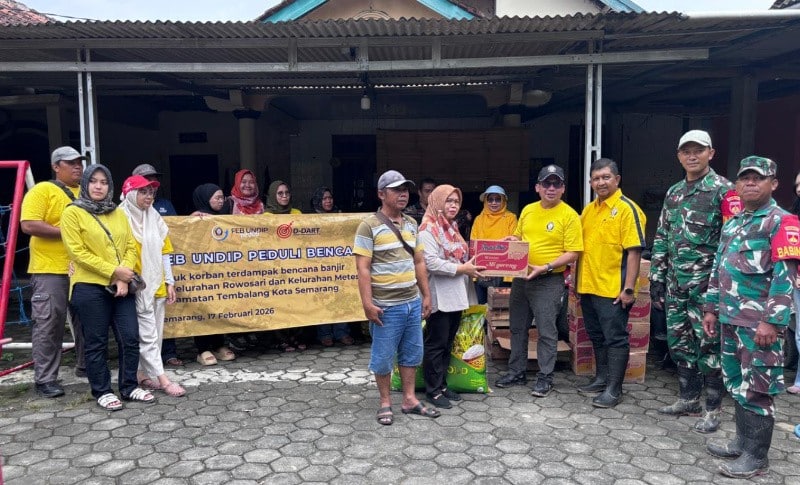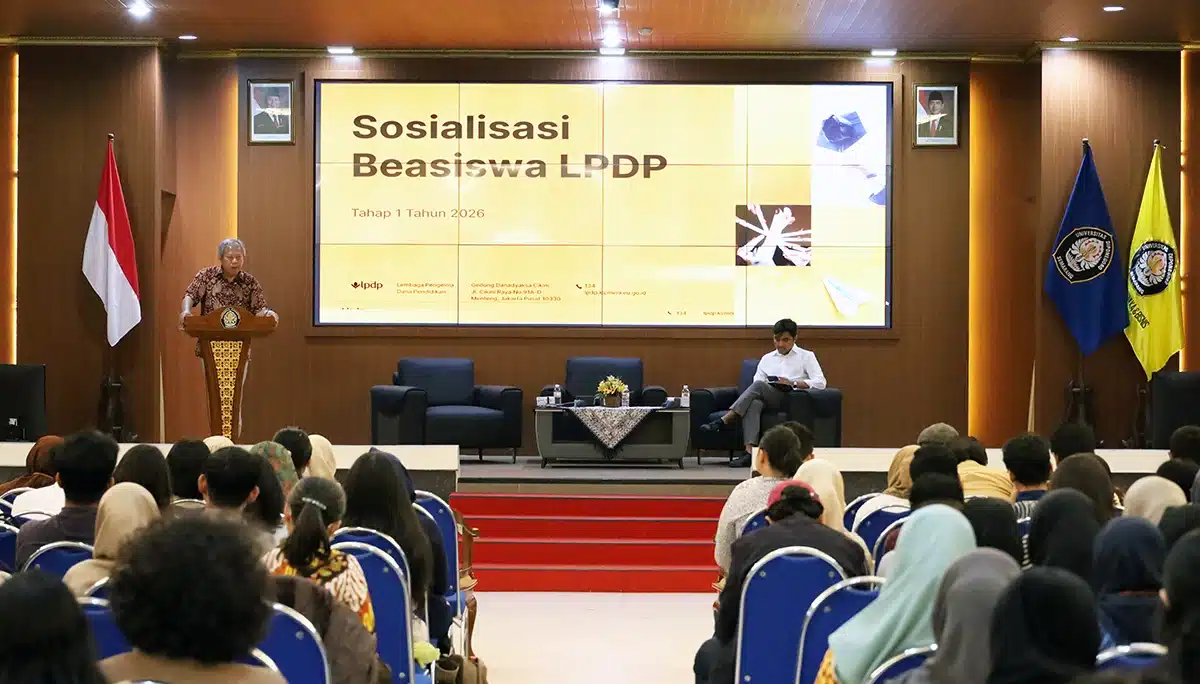As a form of appreciation and honor for the contributions and dedication given, Diponegoro University (UNDIP) held an Open Session of the Purna Adi Cendekia Academic Ceremony on Tuesday (02/04) at the Prof. Soedarto, S.H. Building, UNDIP Tembalang Campus. In this Purna Adi Cendekia (Retirement Ceremony), the Professor of the Faculty of Animal and Agricultural Sciences of UNDIP in the field of Animal Feed Science, Prof. Dr. Ir. Widiyanto, S.U., delivered a scientific speech entitled “Increasing Functional Food Production Based on Ruminant Livestock.”
Prof. Widiyanto explained that discussions about dual nutrition are evolving, with increasing problems such as obesity and cardiovascular diseases. In Asia, the prevalence of dual nutrition mainly ranges from 5% to 29%, and in Indonesia, 24.7% of families experience dual nutrition problems.
Functional foods with active components that provide additional health benefits are considered a solution. Prof. Widiyanto highlights the potential of functional foods from ruminant livestock, such as goats and sheep, which are often viewed as food with negative impacts because they contain high cholesterol and saturated fats.
“Goat and sheep meat is often viewed negatively because of its high cholesterol and saturated fatty acid content, which can cause health problems. This results in low demand and production of these livestock products, even though the production potential in Indonesia is large. Improving this food technology can help increase production and reduce cholesterol levels while increasing the proportion of polyunsaturated fatty acids (PUFAs), which can increase demand and production,” said Prof. Widiyanto.
Studies show that supplementing kapok seed oil in sheep can increase body weight and reduce cholesterol while increasing the proportion of linoleic acid in meat. Further research indicates that a combination of protected kapok seed oil and choline chloride can further enhance these outcomes by reducing cholesterol and intramuscular fat levels and increasing the proportion of linoleic acid in meat.
He emphasized the importance of feed technology that can increase ruminant livestock production while reducing cholesterol levels and increasing polyunsaturated fatty acids (PUFAs). The development of functional foods is considered essential to address the increasing problem of dual nutrition in society.
“The development of functional foods can benefit all parties, including consumers, the food industry, and policymakers, by improving public health, industry income, and job opportunities,” concluded Prof. Widiyanto. (Sudanta-Public Relations)










